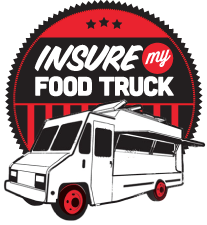California's food service industry is witnessing a transformative shift with the recent updates from the California Workers' Compensation Rating Bureau (WCIRB). These changes go beyond a broad overview, targeting specific aspects of the industry. In this blog post, we'll delve into the intricacies of the WCIRB's classification changes, particularly focusing on the division of Class Code 9079-1 for restaurants or taverns into six new classifications.
Understanding the Division of Class Code 9079-1
Class Code 9079-1, which previously encompassed restaurants, taverns, caterers, and food trucks, has now been dissected into six distinct classifications. This division aims to provide a more granular understanding of the unique risks associated with different types of food service establishments. The six new classifications include:
Class Code 9079-2 - Fast Food Restaurants: This classification is designed for establishments primarily engaged in providing quick-service food items. Fast food restaurants often have specific risks and operational characteristics that differ from other food service businesses.
Class Code 9079-3 - Full-Service Restaurants: For sit-down restaurants that offer a more extensive menu and table service, Class Code 9079-3 has been introduced. This classification recognizes the additional risks associated with a full-service dining experience.
Class Code 9079-4 - Cafeterias or Buffet Style Restaurants: This classification addresses the unique challenges posed by establishments that operate on a cafeteria or buffet-style model. The risks may differ significantly from those in traditional restaurants.
Class Code 9079-5 - Caterers: Catering services, often operating off-site, have their own set of risks and logistical challenges. Class Code 9079-5 provides a specific classification to accurately represent these businesses.
Class Code 9079-6 - Bars and Nightclubs: Recognizing the distinct risks associated with nightlife establishments, Class Code 9079-6 is introduced for bars and nightclubs. This classification acknowledges the entertainment and social dynamics that set these establishments apart.
Class Code 9079-7 - Food Trucks: The growing popularity of food trucks has prompted the creation of Class Code 9079-7. This classification caters to the unique challenges posed by mobile food services, acknowledging their dynamic nature and varied operating environments.
Implications for Food Service Business Owners
For owners of food service establishments, understanding these specific classifications is crucial for ensuring accurate workers' compensation coverage. Key considerations include:
Detailed Assessment of Operations: Business owners should conduct a detailed assessment of their operations to determine which specific classification best represents their establishment. This includes considering factors such as service style, menu offerings, and location.
Collaboration with Insurers: Working closely with insurance providers is essential to communicate changes in operations and ensure that policies accurately reflect the new classifications. This collaboration helps maintain comprehensive and precise coverage.
Employee Training and Safety Measures: Educating employees about industry-specific risks and implementing tailored safety measures is vital. This proactive approach not only enhances workplace safety but also contributes to favorable insurance rates.
Anticipating the Future of the Food Service Industry in California
Though these class code changes are not poised to go into effect until later this year, food service establishments will need to adapt to these refined classifications. Food truck rates will likely rise due to the driving exposure. However, California's WCIRB is paving the way for a more tailored approach to workers' compensation, emphasizing the importance of aligning coverage with the unique challenges faced by different segments of the food service sector. Food truck owners who embrace these changes and prioritize safety measures are well-positioned for success in this evolving landscape.

